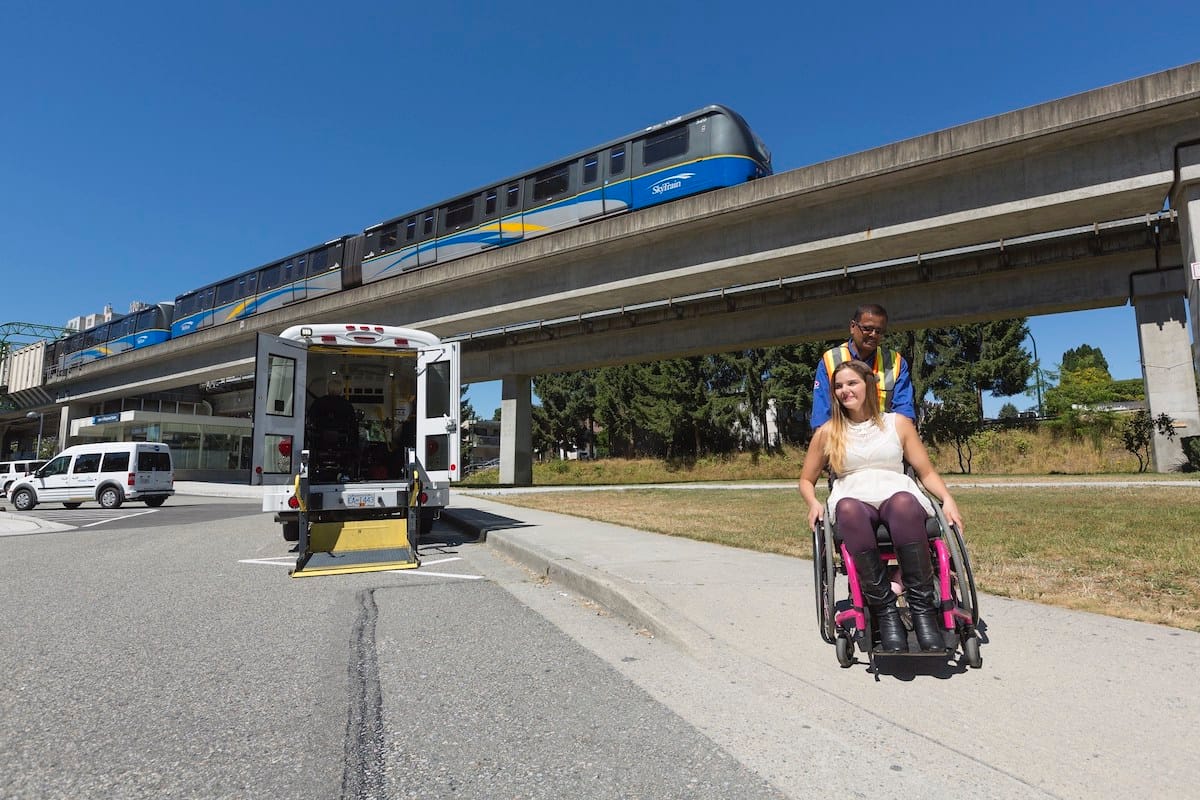How can we ensure our transportation systems are affordable and accessible to those who need them most? A September event by BC Poverty Reduction Coalition’s #AllonBoard campaign and Translink led to a passionate roundtable discussion on the issue, as part of the Transit2050 planning process.

Over the past few months, Translink has held consultation opportunities throughout the Lower Mainland regarding the creation of their 2050 transit plan.
On September 16, 2019, our Communications and Events Coordinator, Micaela Evans, attended an #AllonBoard event organized by the BC Poverty Reduction Coalition and Translink.

Here are some of the key takeaways:
Why consult people who have experienced poverty about the future of transit?
This consultation was held to provide Translink with the perspectives of those who live in or have experience of poverty, as they are often the most impacted group by lack of access to transit services and rising transit costs. Unfortunately, this reality is also true for those living with a spinal cord injury or related physical disability.
A disproportionately high percentage of people with disabilities in BC live at or below the poverty line. This is due, in part, because of a variety of extra expenses, such as accessible housing, daily living, mobility, social and medical/health necessities. In additon to these extra costs, people with SCI or physcial disabilities also experience mobility barriers and limited availability of fully accessible transit options. For these reasons, and many more, it’s vital that the views of those who have experienced poverty is heard.
The Event
At the event, participants discussed a series of prompts with their roundtable groups. Micaela’s group included some wheelchair users (like our Coffee Group leader, George Pope!) and some able-bodied participants. The key takeways from the discussion at Micaela’s table are below.
What do you value about your region and neighbourhood?
- We identified a need for more buses and less Vancouver-centric transit (getting around smaller cities and towns is just as important!). A discussion emerged, looking at how transit is often designed for commuters rather than those who stay in their city during the day: people who don’t work, who work atypical jobs, stay at home parents, students, people with disabilities, etc.
- We prioritized proximity to work and groceries, and stressed that transit trips should be ideally half an hour to an hour at most. Regions should have neighbourhoods with walkability, meaning, you should be able to get groceries and other essentials without the need for a car or travelling a long distance.
- “I value the walkability of Vancouver, I can’t afford a bus pass so I walk.”
- Not everyone is able to move for work, so both affordability and wheelchair accessibility are often fixed, and their location outside of Vancouver can be an issue.
How should the region prepare for the future?
- Make sure that those who benefit from a new transit hub/SkyTrain are actually the people who need it—not developers who sell nearby real estate. It’s important to keep those who require transit for it’s affordability and accessibility in mind for all future plans.
What are your ideas for the future of transportation?
- Our group was very supportive of the #AllOnBoard campaign. They support free transit, and transit based on income through a sliding scale. One idea was that the percentage of one’s income people pay for transit needs to be equalized. If people in poverty are expected to pay the same rates as people making 100K a year, that’s a grossly different percentage of their wage. This discrepancy can lead to people using that money for things like food instead of transportation.
- Another idea was for transit to be ‘no one turned away’ so all can benefit from accessible transit systems. By eliminating ticketing systems you enable people to meet their daily goals and needs without the worry of spending money on something they can’t afford. Currently, people can be punished for evading transit fares in a way that promotes the cycle of poverty. For example, a transit fine can result in limited access to a drivers license, and therefore limited access to employment or other opportunities.
- Some alternative methods of paying fines were discussed: community service or paying in instalments.
Looking to learn more?
Learn more about the work the BC Poverty Reduction Coalition does to mitigate poverty in BC. The #AllOnBoard campaign is another way to get involved regarding these issues.
Our SCI Database has resources on accessible transit options in BC.
In 2018, SCI BC held our own consultations on the barriers people with SCI who live in poverty experience for input on a future provincial poverty reduction strategy. Read our blog on this work.
One of our Peers, Heather McCain, was featured in an article from The Star Vancouver last year, highlighting the difficulties many lower income folks may experience when trying to afford transit costs.



